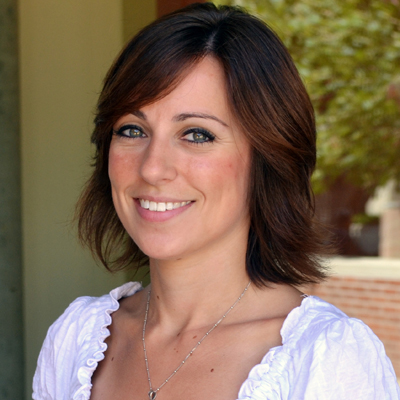Finding natural enzymes in remote areas that can be engineered for the synthesis or semisynthesis of pharmaceutically important compounds
At a time when antibiotic resistant bacterial infections and cancer rates are reaching epidemic proportions, there is an urgent need to discover new therapeutic agents. It has been shown that biological pressures influence the structural diversity of compounds produced in nature and marine-derived microorganisms often contain specialized enzymes not found in their terrestrial counterparts. Thus, these specialized microorganisms serve as an ideal resource for drug discovery efforts and for the characterization of novel biosynthetic enzymes. Dr. Jaclyn Winter, Assistant Professor of Medicinal Chemistry at the University of Utah, uses natural processes to advance medicine. She and her group identify specialized enzymes that are found in some of the most remote areas of the Earth, including the Great Salt Lake, oceans, tropical forests and other areas of extreme temperatures. Thus, they are able to find enzymes that already exist in nature and can develop these enzymes for medicinal purposes where they can be engineered to enhance the efficacy of existing therapeutics or be used in the synthesis or semisynthesis of pharmaceutically important compounds. Therefore, Dr. Winter’s explorative chemistry is on the cusp of inspiring new therapeutic agents for cancer, and other diseases in a sustainable, environmentally friendly way.
Established in January 2015 and currently in its infancy, Dr. Winter’s lab has the potential to explore molecules that could shift the ways in which we treat patients. With a strong focus on natural products, or the specialized small molecules produced in nature, she and her developing team are confident that they will uncover hopeful inspiration for new therapeutic agents. These molecules possess exquisite chemical diversity calling attention to this exciting new front in the world of medicinal chemistry. In addition to finding new molecules, the natural products uncovered by Dr. Winter’s lab help to develop alternative approaches for producing these otherwise inaccessible molecules or derivatives. Particularly interested in the marine environment, which provides a nutrient-rich microhabitat and which differs greatly from terrestrial soil, Dr. Winter is elucidating molecules with unique metabolic capabilities that are able to survive and adapt to the constantly changing conditions associated with the marine environment.
Current research includes:
-
Nature’s Blueprint: Dr. Winter is elucidating the biosynthetic blueprint that nature uses for assembling biologically active compounds in bacteria and fungi. By exploring molecules that are isolated in a marine environment, her lab is able to uncover novel bioactive molecules and enzymes that would not be encountered elsewhere.
-
Reprogramming Molecules: Dr. Winter manipulates and reprograms biosynthetic systems to generate new compounds with enhanced biological activities. By asking “how does nature make it?,” she and her team are able to create biological catalysts that have similar properties. Additionally, if a compound is found to be a helpful target for therapeutics, she can then study how to make the compound in larger quantities in a safe and sustainable way.
-
Environmental Impact: Dr. Winter is exploring the functional roles these molecules serve the producing organism, as well as their impact on the environment. She develops individual enzymes that carry out complicated reactions into renewable and environmentally friendly ways that are likely to have an important impact on the future of biomedical research.
Bio
At an early age, Dr. Winter developed an interest in the biological sciences and was always asking questions such as, “Why is a rose red?”, “Why does it smell a certain way when it rains?”, and “Why does mom cry when she chops onions?” She initially started her undergraduate studies pursuing a degree in molecular biology hoping to become a zoologist. After taking an organic chemistry class her sophomore year, however, her fascination with understanding the chemistry governing biological processes began.
In graduate school, she was able to combine her passions for chemistry and biology and performed studies at the biology-chemistry interface where she investigated the biosynthesis of specialized molecules that were isolated from the marine environment. This biology-chemistry interface was one that excited Dr. Winter’s curiosities and desires to mix the worlds of chemistry and biology in a way that could have a true impact on society. A turning point in Dr. Winter’s research came suddenly when her father passed away in 2014 as a result of colon cancer. She remembers her father with wonderful memories, with one of the last being her father walking her down the aisle as she said her vows shortly before his passing. It was then that she decided she wanted to use natural products as a resource for the discovery and development of new antineoplastics in the hopes of helping others that suffer from cancer like her father did. Additionally, with the rampant rise of antibiotic-resistant bacterial infections, she is interested in developing new antimicrobial agents. With the hope that results from her research might be used in designing new therapeutic agents, Dr. Winter hopes to transform the semisynthesis of pharmaceutical agents.
In her free time, aside from research, Dr. Winter enjoys running. While she doesn’t have as much time for running, as she once did running competitively in both high school and college, she tries to squeeze it in to her schedule each week. When not exploring nature on a run, you might find her cooking a tasty dinner, watching English and American football with her husband or relaxing with her two cats. As a new Utah resident, Dr. Winter also hopes to take part in some of the incredible outdoors in her community. She expects to be snowshoeing and skiing next winter and is ready for beautiful hikes and trail runs in the summer.
Website: http://www.bioscience.utah.edu/faculty/biological-chemistry-faculty/wint...


